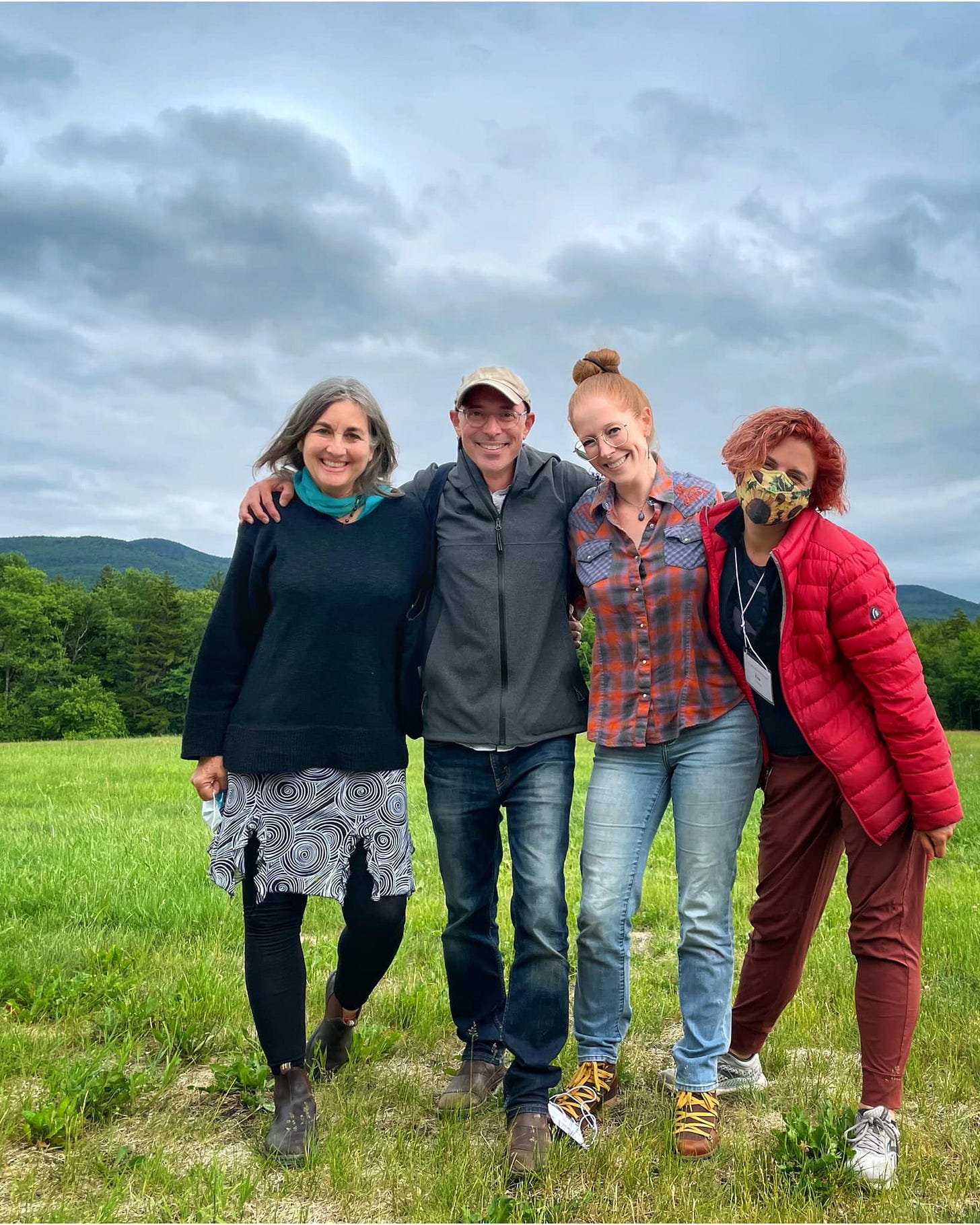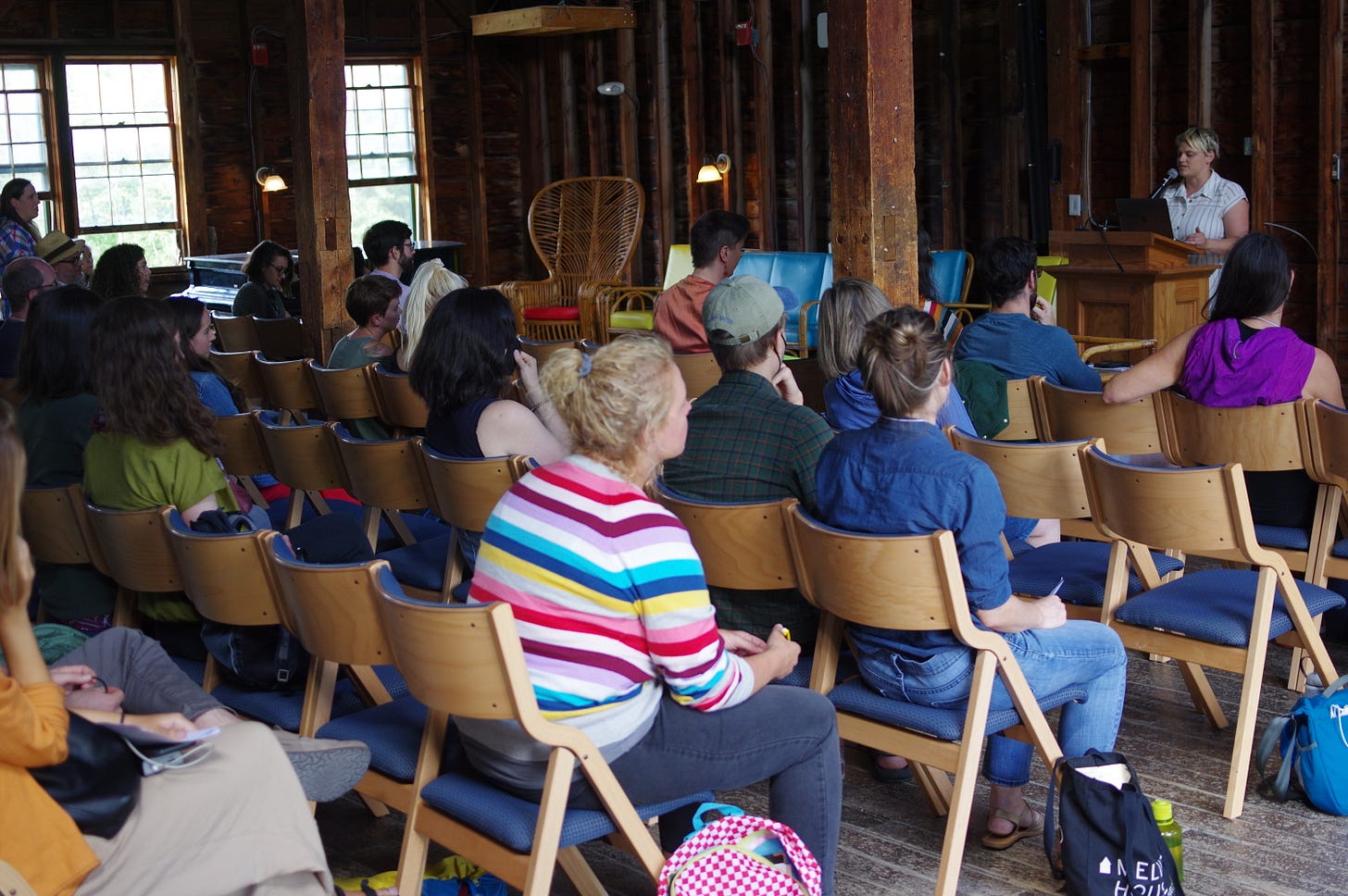At Bread Loaf Environmental Conference in June 2022 I attended a talk by Matt Weiland on getting published. Weiland is a vice president and senior editor at W.W. Norton and Co., an independent and employee-owned publishing house in New York. I learned very quickly that Weiland is also a fun-loving guy with a constant smile who seems genuinely interested in people and always ready for an adventure.
About 25 writers were under a large tent outdoors on the Bread Loaf campus. Right away Weiland asked the writers, “What is your burning question?” and he listened as, one by one, writers asked their questions. He didn’t stop to answer any of them, just listened. (I was jotting down questions in my OCD way.) I think Weiland was trying to get a general idea of what was on the participants’ minds. After a dozen questions, Weiland began to talk.
I hear a tremor of fear in your questions. You're asking, “Am I permitted to do this?” Your job is to write the thing you want to write. All it takes is one agent, one editor, to get excited about what you're doing. Put the negativity out of your head. Focus on the writing that is unique to you.
A publishing house wants to be surprised. Do the thing that gets somebody excited—What's that going to feel like on the page?
Question: Will you talk about book proposals?
Weiland: For fiction and memoir—you need a manuscript.
For nonfiction—you need a proposal.
The proposal can begin to seem more important than the thing itself. A proposal is a tool. Yes, you're much more likely to get a book deal if you get a great 40 pages, so that one person at Norton says to another, ‘You've got to read this.’ But writers spend way too much time crafting a proposal. Too much time and energy is spent on trying to describe a thing. That is less important.
When you are pitching your idea, say what made you get interested in this. Is it a family story? A place you went? What sparked it (at your most informal)?
Make me feel that the world is larger and fresher than it was before.
Editors are overwhelmed with proposals and manuscripts. Don't get into a weird, boring voice. What is your personal pantheon of books that inspired you? Write something different. If you find there's no lane there, make that lane.
Question: How do we know when a book proposal is ready?
Weiland:
Have key readers read it early on.
You’ll know it’s ready when your readers are saying, This is good.
Question: How extensive is the editing?
Weiland: Most books I've published lost 10s of 1000s of words.
Question: Do you believe in crossover books?
Weiland: Genre is fluid for most books. At basic, the question is, is it true or not true? This is a true story or it isn't.
Question: How do you feel about inventive forms? (The person was writing about adult friendship.)
Weiland: Regarding the question of "what is it?"—that's my job.
Question: How much is too much anthropomorphism?
Weiland: If you can make me believe it, it’s not too much.
Question: What’s your advice for finding an agent? (This person said she was writing about trauma and climate change.)
Weiland: To find an agent, check books you like. Ask editors of lit mags. Every agent I know can place a book somewhere.
Question: What is an effective means for narrowing down potential agents?
Weiland: Choose as if you’re choosing a doctor. Look at gender, age.
Question: What does “trade book” mean?
Weiland: Trade is general interest publishing. It’s a dull name but a glorious thing.
Question: How can we help boost our odds before publishing?
Weiland: Do a lot of written pieces, publish in mags and lit mags like The Common, Ecotone. (He mentioned these because we were at an environmental writing conference.)
Question: Publicity seems tough these days.
Weiland: Nobody is reviewing books anymore except some shows on NPR. All that burnt down to ash. So you have to get creative with PR and marketing. For example, I brought out a book on the Great Lakes. Dozens of environmental organizations work on protecting the Great Lakes. To publicize that book I sent notices to the communcation director or deputy director of 50 organizations, early on, asking to get items in their newsletters.
Ask yourself, what are 20 organizations that would be really interested in this idea?
Question: Publishing seems like such a risky thing. What are your thoughts?
Weiland: Every book is risky. Publishing is about taking a risk. The lifespan of a book is somewhere between milk and yogurt. Don't be downhearted. I'm bullish about publishing. Just focus on what is exciting you about the book. Why do you have to write the story?







I’m in the early stages of writing a memoir. Not knowing where to start but I had an epiphany around 3am Tuesday morning & I mulled it over all day. This morning I wrote it out & now I know which direction I’m going.
Thanks for sharing this. Even if I never get published, I hope this is a story that will live on for generations through my family tree.
“Your job is to write the thing you want to write.”--That is exactly what I’ll do. If it catches the eye of an editor, great. If not, it will be a bit of family history from my perspective.
Thx for being OCD Janisse! Liked these questions and LOVED the answers. The "what 20 organizations would be interested" (newsletter) tip is a great takeaway for me. Sounds like it was a really cool event.